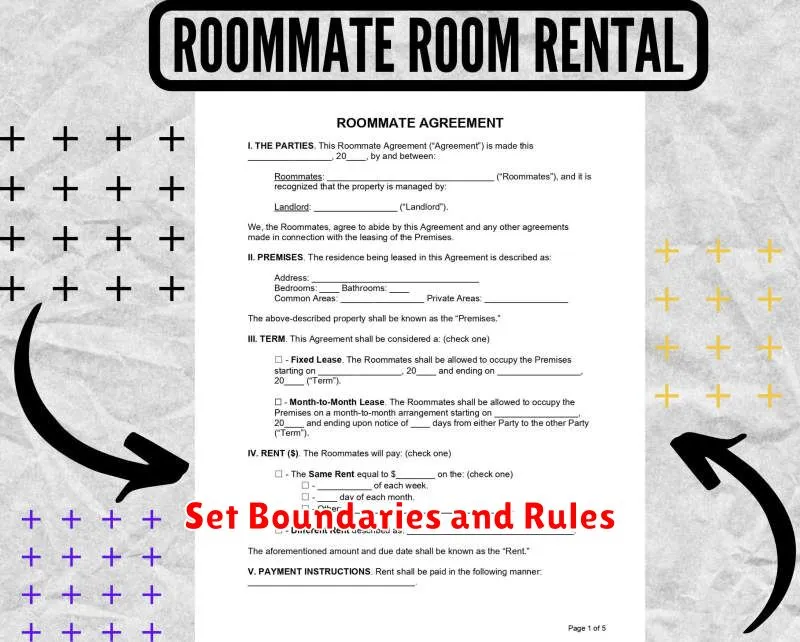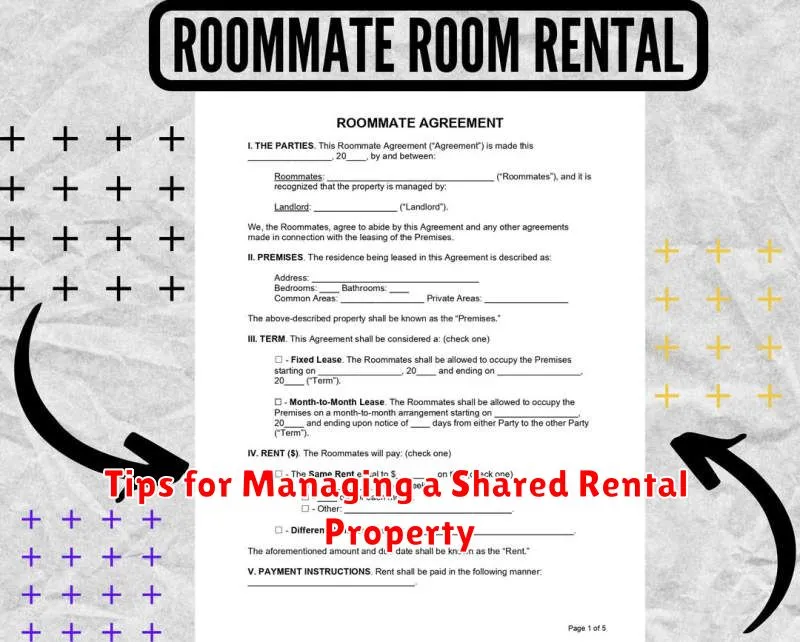Sharing a rental property can be a fantastic way to reduce living expenses and enjoy a sense of community. However, successfully navigating the complexities of shared living requires careful planning and open communication. This article provides practical tips for managing a shared rental property, covering everything from establishing clear expectations and responsibilities to addressing conflicts and maintaining a harmonious living environment. Whether you’re a seasoned renter or a first-timer considering shared housing, these insights will help you establish a smooth and positive shared living experience. Learning how to effectively manage a shared rental property is essential for all involved.
Successfully managing a shared rental property hinges on proactive communication and a shared understanding of expectations. From dividing rent and utilities fairly to establishing guidelines for guests, cleaning, and shared spaces, this article will equip you with the tips and strategies necessary for a thriving shared living situation. We’ll address common challenges in shared housing and offer solutions for conflict resolution, ensuring your shared rental experience is positive and productive. Implement these tips for managing a shared rental property to foster a respectful and enjoyable environment for all housemates.
Agree on Shared Expenses
One of the most critical aspects of cohabitating is establishing a clear and concise agreement regarding shared expenses. This proactive approach can prevent misunderstandings and disagreements down the road.
Key expenses to consider include rent, utilities (electricity, water, gas, internet), groceries, household supplies, and maintenance costs. Decide whether to split expenses equally or proportionally based on factors like room size or income. Documenting these agreements in writing is highly recommended.
Consider using expense-tracking apps or spreadsheets to maintain transparency and simplify accounting. Regularly review and adjust the expense-sharing agreement as needed, ensuring it remains fair and equitable for all housemates.
Divide Chores Equally
A fair division of labor is essential for a harmonious living environment. Clearly defined responsibilities prevent resentment and ensure a clean and comfortable shared space. Discuss and agree upon a chore division system early in your tenancy.
Several methods can be employed for chore distribution. A rotating schedule assigns tasks on a weekly or monthly basis, ensuring everyone takes a turn with less desirable chores. Alternatively, a fixed chore system assigns specific tasks to each housemate for the duration of the lease. This method can cater to individual preferences and strengths.
Open communication is key to a successful chore system. Regularly discuss any issues or concerns that arise. Be flexible and understanding, as unforeseen circumstances may require adjustments to the agreed-upon schedule.
Set Boundaries and Rules

Clearly defined boundaries and rules are essential for a harmonious shared living environment. These should be discussed and agreed upon by all housemates before anyone moves in. This proactive approach can prevent misunderstandings and conflicts later on.
Consider creating a written house agreement outlining key aspects of shared living. This document serves as a helpful reference point for everyone. Common areas to address include:
- Guest Policy: Overnight guests, visitor frequency, and expected behavior.
- Cleaning Responsibilities: Creating a cleaning schedule and defining shared responsibilities.
- Quiet Hours: Establishing reasonable quiet periods to respect everyone’s need for rest and focus.
- Shared Expenses: How bills will be split and paid (rent, utilities, groceries, etc.).
- Pet Policies: If pets are allowed, specify any restrictions on breed, size, or number.
Regular house meetings can provide a platform for open communication and address any emerging issues. These meetings also allow for a review and adjustment of the house rules as needed.
Handle Conflicts Respectfully
Sharing a living space requires understanding and respectful communication, especially when conflicts arise. Address issues promptly and directly with the involved housemates. Avoid letting disagreements fester, as this can create a tense living environment.
Listen actively to each other’s perspectives. Try to understand the other person’s point of view, even if you don’t agree with it. Express your own concerns calmly and clearly, using “I” statements to avoid blaming or accusing.
Focus on finding solutions that work for everyone involved. Be willing to compromise and consider different options. If you’re struggling to resolve a conflict on your own, consider involving a neutral third party, such as your landlord or a mutual friend, to help mediate.
Keep Communication Open

Open and honest communication is crucial for a harmonious shared living environment. Establish clear communication channels from the outset. This might involve a group chat, regular house meetings, or a shared online calendar.
Proactively discuss shared expenses, such as rent, utilities, and groceries. Transparency in financial matters helps prevent misunderstandings and resentment. Consider using a shared expense tracking app to simplify the process.
Address issues and concerns promptly and respectfully. Avoid letting small problems fester, as they can escalate into larger conflicts. Be willing to compromise and find solutions that work for everyone.

